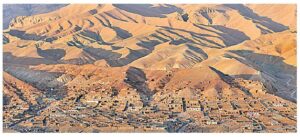National security as a first Election issue

TORONTO – Experience tells us that some decisions are just bad. Full stop. We all make them. Governments, no matter how powerful or well-intentioned, make, them too. Eventually, they come back to bite us in the rear, so to speak.
The infamous War in Afghanistan is a classic example. What does Afghanistan, 10,000 km from Canada, landlocked and now one of the poorest countries in the world, have to do with us, one might ask?
Five words: the United States of America. Next month, the USA and its allies (we are one of them) will commemorate the infamous terrorist attack on the Twin Towers in New York City. The perpetrators, Saudi suicide bombers, were inspired and financed by Osama Bin Laden, who had sought, and been given, refuge by the “ultra-orthodox Islamist” Taliban government in Afghanistan.
The USA put pressure on its allies to form a “Coalition of the Willing” [states] to exact revenge and restructure the culture of the country – militarily, politically, ideologically and socially. Twenty years later, the USA is withdrawing. Canada left in 2014.
We “had to be coaxed” into joining a “shooting war” that made little sense except that our Ally to the south demanded we do so. The rationale was all about fighting “radical Islamism,” correcting the discrimination against women and girls, opening schools and hospitals and building a physical infrastructure to bring Afghanistan’s economy into the twenty first century. Noble, naïve or deceptive justifications?
The Afghanistan War turned out to be Canada’s longest lasting war. About 40,000 Canadian Armed Forces members served at least one rotation in a 12-year campaign that came to a merciful end in 2014. Seven Canadian civilians and 158 soldiers died during missions. Many others were wounded – physically and psychologically. Some committed suicide.
On a material expenditure basis, even if estimates vary according to the matrices applied, Canada spent $15 Billion directly and another $2 Billion in infrastructure. Impressive numbers before the Covid expenditures threw old values into a tizzy. American expenditures have surpassed the trillion-dollar mark.
Afghanistan is now the world’s largest opium producer and exporter. Afghanistan accounts for around 90% of global illicit opium production, according to the US President’s Office of Drug Control Policy (ODCP). Its main opiate is heroin whose market value is estimated at 55 billion USD.
The Americans, blithely, cast blame on conditions that they helped create without accepting any responsibility. Under President Obama, it claimed that “there is a symbiotic relationship between narco-traffickers and the insurgency, as narcotics traffickers provide revenue and arms to the insurgency, while insurgents provide protection to growers and traffickers to prevent the government from interfering with their activities.” Nothing that the military might of the USA and its Allies could prevent.
Furthermore, it went on to say, “drug-related corruption continues to undercut international reconstruction efforts and good governance, as government officials abuse their positions by benefiting financially from the drug trade… The responsibility for curbing heroin production and trafficking lies primarily with the source countries. The profitability of growing opium poppy and the lack of resources or commitment by regional governments to implement crop substitution, alternative development, or eradication are key factors that prevent significant progress…” In other words, “what are we doing here”?
Compared to Canada, Afghanistan is virtually destitute, economically. It is important to separate our views about its people from those we ascribe to its “government,” if for no other reason than we have been complicit in making the latter dysfunctional.
Seven years ago, Canada abandoned the Afghan mission. Friday, seven years later in anticipation of the turmoil that will ensue when the Taliban resumes imminent, complete control, the Canadian government announced it is preparing to provide haven to 20,000 Afghan refugees to be.



